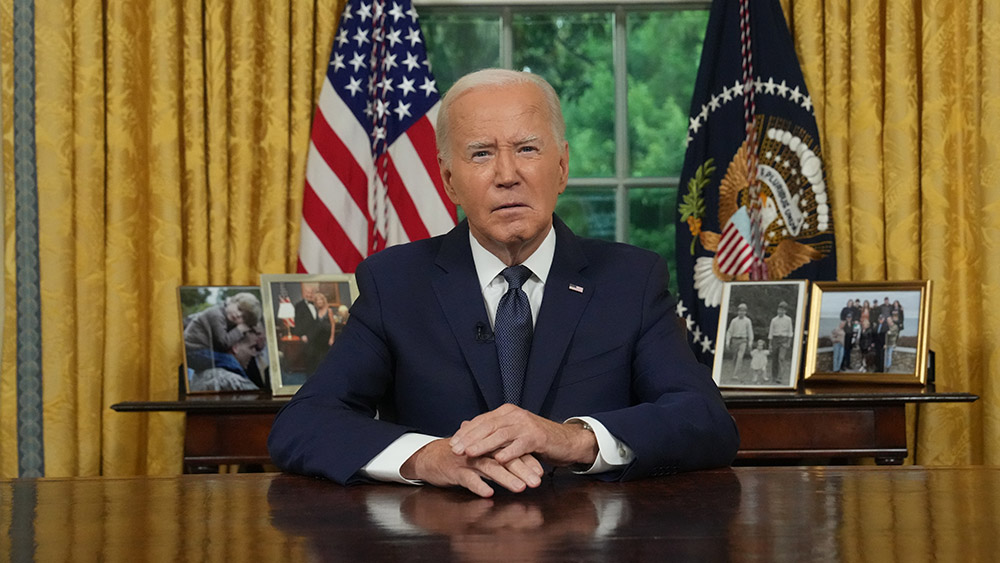 Parler
Parler Gab
Gab
- Controversial Nominations: Trump’s picks for key health roles—Dr. Marty Makary (FDA), Dr. Jay Bhattacharya (NIH), and Casey Means (Surgeon General)—have sparked debate due to their opposition to COVID restrictions and ties to corporate interests, raising concerns about their alignment with public health priorities.
- Silicon Valley Influence: Casey Means, a wellness entrepreneur and co-founder of Levels.com, faced backlash over her rapid rise and connections to Big Tech investors (e.g., Andreessen Horowitz, Dick Costolo). Critics accuse her of prioritizing tech-driven health monetization over genuine public health needs.
- Data Privacy Concerns: Means’ company, which tracks glucose data via subcutaneous sensors, exemplifies fears of "surveillance capitalism," with critics like Naomi Wolf warning that tech oligarchs (e.g., Elon Musk) seek to exploit government health data for AI and profit.
- Political Backlash: The nomination divided the MAHA movement, with figures like Nicole Shanahan condemning it as a betrayal of grassroots values. Calley Means (Casey’s brother) exacerbated tensions by mocking critics, while Trump allies dismissed concerns as overblown.
- Broader Debate: The controversy reflects a clash over whether public health should be governed by transparent, civic-minded policies or Silicon Valley’s profit-driven ambitions, with the Senate’s review of Means’ nomination serving as a litmus test for Trump’s health agenda.
Silicon Valley’s Influence in Trump’s Surgeon General Pick Sparks Controversy
A political firestorm erupted on May 7, 2025, when President Donald Trump nominated wellness entrepreneur Casey Means as Surgeon General, replacing Dr. Janette Nesheiwat, whose medical credentials were later found to be misrepresented. The decision has divided the Make America Healthy Again (MAHA) movement, with critics—including former Vice-Presidential candidate Nicole Shanahan—accusing Means and her brother, Calley Means, of advancing Silicon Valley’s interests over public health. The controversy highlights growing concerns about Big Tech’s influence on government policy and the security of sensitive health data. Casey Means, co-founder of the glucose-monitoring startup Levels.com, has raised over $55 million from investors including Andreessen Horowitz, former Twitter CEO Dick Costolo, and Google alumni. Critics argue her company exemplifies Big Tech’s push to monetize biometric data. Levels.com uses subcutaneous filaments to track glucose levels, feeding data to cloud platforms—a model some compared to surveillance capitalism. “They want to get inside your body,” wrote commentator Naomi Wolf in a February 2025 essay, The Sack of Rome, warning that tech oligarchs like Elon Musk covet government-held health data for AI training and commercial exploitation. Wolf noted that Means’ rapid rise—despite her lack of prior tech experience—suggests orchestrated backing by powerful Silicon Valley players. The nomination also reignited debates over data security. Earlier in 2025, Musk’s AI firm DOGE faced scrutiny after reports revealed it had rewritten government code and hosted sensitive data on third-party platforms like Microsoft. A mass resignation of U.S. Digital Service technologists in February underscored fears that privatization could compromise national security. Shanahan, whose support was pivotal to RFK Jr.’s alliance with Trump, publicly condemned the nomination, citing a broken promise that neither Means sibling would join the administration. Calley Means further inflamed tensions by mocking critics on social media, while Trump allies dismissed concerns as “absurd.” The clash reflects a broader struggle over who controls America’s health infrastructure—government stewards or tech-driven entrepreneurs. With biometric data poised to revolutionize medicine, critics warn that unchecked corporate access could erode privacy and skew policy toward profit-driven outcomes. As the Senate prepares to review Means’ nomination, the debate underscores a pivotal question: Should public health be shaped by Silicon Valley’s ambitions or by transparency and civic accountability? For MAHA activists, the answer may determine whether Trump’s health agenda aligns with grassroots priorities or tech-industry imperatives. Bottom line: Donald Trump’s nominations for key health roles—Dr. Marty Makary (FDA), Dr. Jay Bhattacharya (NIH), and Casey Means (Surgeon General)—have ignited controversy due to their opposition to COVID restrictions and ties to corporate interests, raising concerns about their commitment to public health. Means, a wellness entrepreneur and co-founder of Levels.com, faced criticism for her rapid rise and Silicon Valley connections, including backing from investors like Andreessen Horowitz. Her company’s use of glucose-tracking sensors also fueled fears of "surveillance capitalism," with critics like Naomi Wolf warning of tech oligarchs exploiting health data for profit. The nomination divided the MAHA movement, with figures like Nicole Shanahan calling it a betrayal, while Trump allies dismissed backlash as exaggerated. The debate highlights a broader clash between public health transparency and Silicon Valley’s profit-driven influence, with Means’ Senate review serving as a test for Trump’s health agenda. Sources for this article include: NaturalNews.com NaomiWolf.substack.comFederal settlement ends FRT ban in historic triumph for gun rights
By Willow Tohi // Share
“Breaking the Chains” on BrightU: How AI homesteading bots will decentralize food and crush Big Ag
By Jacob Thomas // Share
Governments continue to obscure COVID-19 vaccine data amid rising concerns over excess deaths
By patricklewis // Share
Tech giant Microsoft backs EXTINCTION with its support of carbon capture programs
By ramontomeydw // Share
Germany to resume arms exports to Israel despite repeated ceasefire violations
By isabelle // Share










